The Seeker's Library - Zubair's Bookshelf
Monthly Curated Volumes for the Discerning Seeker - Late-June/July 2025
A warm welcome to Zubair’s Bookshelf’s first-ever monthly curated reads (booklist)—The Seeker’s Library! A blazing launch into a tradition of curiosity, wonder, and world-shaping ideas!
An Overview
This Late-June/July book line-up rips the veil from history and plunges you into its roaring bloodstream, where caravan bells and ship masts echo across continents, carrying manuscripts, silks, and dangerous ideas from one empire’s edge to another’s heart!
Here, mystics whisper counsel to kings; artists, rebels, and exiles redraw the map of human imagination; and Jewish merchants in Iran, Sufi orders in imperial courts, and African and Uyghur storytellers reclaim voices buried for centuries.
These books are portals to illuminated bestiaries where science and faith embrace, to cities dreamed into being across oceans, to printing presses that detonated revolutions, and to objects whose quiet presence hides worlds of meaning. They do not flinch from history’s shadows—colonial conquest, slavery, environmental catastrophe, genocide—but they also reveal the fierce beauty and resilience that have always defied them.
Shattering the narrow lenses of Eurocentric timelines, they center Africa, Central Asia, the Persianate world, and the Indian Ocean as the beating heart of global history.
By the Numbers
Spanning 120 books from 1994 to 2026, this list’s heartbeat is unmistakably modern. The single largest cluster—45 titles—comes from 2025, proof of an extraordinary surge in fresh scholarship and daring perspectives.
High points also emerge in 2023 (11 titles) and in 2018 and 2024 (9 each), underscoring how the last decade has been especially fertile for rethinking the past. While earlier milestones remain here, this list is overwhelmingly a celebration of the contemporary explosion of historical, cultural, and intellectual inquiry —evidence that the stories shaping our understanding of the past are still being written.
A Book List in Batches of 10
To keep the 120-book lineup engaging and easy on the eyes, the books are listed in batches of ten, with some graphics to break the monotony and give the list a vibrant, visually captivating flow. The books can also be easily referred to and remembered by the batch/booklist number.
A Dedication
I dedicate this first curated list to my beloved mother who passed away on April 17, 2025. She, along with my father, made me who I am. Her love, guidance, and faith in me are woven into every page I turn and every story I seek to share.
Now, dive into this extraordinary world of books! Let it challenge you, surprise you, and expand your horizons! Each title is a doorway: step through and see the world anew!
Booklist #1:
Published 2018, Between Iran and Zion: Jewish Histories of Twentieth-Century Iran by Lior B. Sternfeld uncovers the untold story of a vibrant Jewish community that helped shape modern Iran’s political and cultural landscape. Through archives and oral histories, Sternfeld reveals how Iranian Jews were revolutionaries, nation-builders, and visionaries rooted in both Tehran and Jerusalem, defying the narrative of exile.
Published 2019, Philosophy and Jurisprudence in the Islamic World, Volume 1, edited by Peter Adamson, reveals a rich tradition where legal reasoning and philosophy were deeply intertwined, shaping debates on certainty, morality, and divine law. This groundbreaking collection uncovers how Islamic jurists and philosophers co-created a shared intellectual universe, blurring the line between law and metaphysics.
Published 2023, Wonders and Rarities: The Marvelous Book That Traveled the World and Mapped the Cosmos by Travis Zadeh resurrects the story of Zakariyyāʾ Qazwīnī’s 13th-century masterpiece—a scientific, spiritual, and artistic atlas of the universe. This remarkable book traces how a work once hailed as a triumph of knowledge was later dismissed as superstition, revealing a lost Islamic tradition where wonder itself was a form of reason.
Published 2025, Shifting Sands: A Human History of the Sahara by Judith Scheele transforms the desert from a barren void into a vibrant crossroads of trade, empire, religion, and migration. Spanning millennia, this sweeping history uncovers the Sahara as a living, contested, and deeply connected heart of Africa’s human story.
Published 2025, Dark Brilliance: The Age of Reason: From Descartes to Peter the Great by Paul Strathern exposes the paradox of a century hailed for its genius yet steeped in bloodshed, absolutism, and conquest. This gripping narrative reveals how modernity’s light was forged in fire, ambition, and brutality, reshaping the Western world at an immense human cost.
Published 2023, Conservation of Books, edited by Abigail Bainbridge, is a groundbreaking global reference on the art, science, and philosophy of preserving books across cultures and centuries. Bringing together 70 experts from 19 countries, it unveils the hidden structures, fragile materials, and timeless stories behind humanity’s most enduring vessels of knowledge.
Published 2018, Arts of Allusion: Object, Ornament, and Architecture in Medieval Islam by Margaret S. Graves reveals how everyday objects—lanterns, inkwells, bowls—were crafted as intellectual and poetic statements, echoing architecture and literary thought. This groundbreaking study transforms the portable arts of the 9th–13th centuries into living texts, where ornament became language and craftsmanship a form of philosophy.
Published 2025, Mobile Manuscripts: Arabic Learning across the Early Modern Western Indian Ocean by Christopher D. Bahl uncovers a hidden oceanic world where books, not just ships, connected civilizations. Through the journeys of Arabic manuscripts between Egypt, Yemen, Gujarat, and the Deccan, Bahl maps a vast transoceanic network of scholars, scribes, and ideas carried on the tides of the Indian Ocean.
Published 2023, The Tarikh-i Ḥamidi: A Late-Qing Uyghur History by Musa Sayrami, translated by Eric Schluessel, is a gripping firsthand account of rebellion, fleeting independence, and brutal reconquest in 19th-century Xinjiang. Blending eyewitness testimony, Islamic scholarship, and political reflection, it stands as a foundational Uyghur chronicle of power, resistance, and the haunting cost of failed revolution.
Published 2015, Istanbul Exchanges: Ottomans, Orientalists, and Nineteenth-Century Visual Culture by Mary Roberts reimagines Orientalism as a two-way encounter, where Istanbul shaped European art as much as it was depicted by it. Through vibrant networks of artists, patrons, and imperial courts, Roberts uncovers a forgotten era of transcultural creativity where East and West painted modernity together.
Booklist #2:
Published 2016, with a paperback edition released in 2025, Arab Orthodox Christians Under the Ottomans 1516–1831 by Constantin A. Panchenko, translated by Brittany Pheiffer Noble, uncovers the vibrant world of Arabic-speaking Orthodox Christians living under Ottoman rule. Drawing on rare archives and forgotten chronicles, it reveals a dynamic Christian society shaping faith, politics, and culture in the heart of an Islamic empire.
Published 2023, Transimperial Anxieties: The Making and Unmaking of Arab Ottomans in São Paulo, Brazil, 1850–1940 by José D. Najar unravels the complex story of Ottoman migrants navigating race, empire, and religion in Brazil’s fraught social order. This groundbreaking study exposes how Arab Muslims, Christians, and Jews continuously reinvented their identities amid overlapping colonial logics and fragile notions of belonging.
Published 2025, Esotericism in Western Culture: Counter-Normativity and Rejected Knowledge by Wouter J. Hanegraaff dismantles the myth of Western rational triumph, exposing how mystical and esoteric traditions were deliberately erased to define “modern” thought. This provocative work reframes rejected knowledge—not as superstition—but as a vital, silenced strand of human inquiry that challenges the boundaries of reason and power.
Published 2023, The Central Asian World, edited by Jeanne Féaux de la Croix and Madeleine Reeves, reimagines Central Asia as a dynamic crossroads where empires, ecologies, languages, and rebellions converge. This groundbreaking volume challenges its “marginal” label, revealing a region alive with cultural creativity, political turbulence, and global entanglements that reshape our understanding of world history.
Coming January 2026, Religious Change in Post-Mao China: Toward a New Sociology of Religion by Yanfei Sun traces the dramatic resurgence of faith in officially atheist China, from Protestant awakenings to revived folk traditions and embattled Catholicism. Drawing on two decades of research, Sun unveils how power, crisis, and resilience reshaped religion in one of the world’s most tightly controlled societies.
Coming August 2025, Songs of the Arabian Red Sea: A Cultural History by Dionisius A. Agius, Muhammad Alhazmi, and Hasan Hujairi charts the maritime world of the Red Sea through its fading musical traditions, where sailors sang to steer, soothe, and survive the waves. Blending ethnography, history, and musicology, this groundbreaking work turns sea shanties and ballads into living maps of trade, memory, and cultural connection.
Coming October 2025, Africa in the World’s Time by Mamadou Diouf challenges Eurocentric timelines that cast Africa as a latecomer to history, revealing instead a continent that has always shaped global thought and imagination. Through African intellectual, literary, and revolutionary traditions, Diouf redefines history itself—not as empire’s linear clock, but as a living, plural, and world-making force.
Coming November 2025, The Killing Age: How Violence Made the Modern World by Clifton Crais dismantles the myth of modernity as progress, exposing 1750–1900 as an era built on orchestrated death—the Mortecene. Through colonial conquest, genocide, and ecological devastation, Crais reveals how violence was not incidental to modern history but its driving engine, shaping the fragile world we inhabit today.
Published 2023, Gifts in the Age of Empire: Ottoman–Safavid Cultural Exchange, 1500–1639 by Sinem Arcak Casale reimagines diplomacy as a theater of power where luxury objects, not swords, carried imperial messages. Through carpets, jeweled daggers, and silken offerings, Casale reveals how the Ottomans and Safavids forged rivalry, identity, and prestige in a dazzling exchange of art and politics.
Published 2007, Between Foreigners and Shi‘is: Nineteenth-Century Iran and its Jewish Minority by Daniel Tsadik uncovers the complex realities faced by Iranian Jews navigating local Shi‘i power, European influence, and fragile tolerance under Qajar rule. Drawing from diverse Persian, Hebrew, Judeo-Persian, and European sources, Tsadik reveals a history of resilience, negotiation, and shifting minority-state relations in 19th-century Iran.
Booklist #3:
Published 2018, The Mercantile Effect: Art and Exchange in the Islamicate World During the 17th and 18th Centuries, edited by Sussan Babaie and Melanie Gibson, illuminates how trade routes carried not only goods but also ideas, aesthetics, and ambitions that reshaped cultures across continents. Through silks, ivories, manuscripts, and porcelains, this richly illustrated volume reveals the Islamicate world as a powerful cultural engine driving global transformation in the early modern era.
Coming October 2025, Earth Shapers: How We Mapped and Mastered the World, from the Panama Canal to the Baltic Way by Maxim Samson tells the sweeping story of humanity as a force that carved paths, built canals, moved rivers, and reimagined landscapes. Blending geography, history, and politics, Samson reveals how human ambition has continuously reshaped the planet—leaving marks that define our past, present, and future.
Published 2025, Life of an Enslaved African in the Ottoman Empire and Iran: The Autobiography of Mahboob Qirvanian by Behnaz A. Mirzai resurrects a lost voice of bondage, survival, and defiance. In this rare firsthand account, Mahboob Qirvanian recounts his journey from African shores to Ottoman slave markets and Iranian courts, charting a life carved out of captivity, resilience, and self-authorship—shattering the notion that the story of slavery belongs only to the Atlantic world.
Published 1994, A History of Arabic Astronomy: Planetary Theories During the Golden Age of Islam by George Saliba dismantles the myth of scientific stagnation in the Islamic world after the 10th century. Drawing on newly unearthed manuscripts, Saliba reveals how Muslim astronomers reengineered planetary theory with groundbreaking models that later shaped Copernican astronomy.
Published 2025, Global Trade in the Premodern World: Thematic Approaches to Routes, Realms, and Networks by Richard L. Smith and Edmond Smith reimagines the history of long-distance exchange as the lifeblood of early globalization, connecting Africa, Asia, and Europe through goods, ideas, and power. Moving beyond linear East-West narratives, it maps a vast premodern trading world where caravans, sea routes, and networks reshaped economies and empires long before modern capitalism emerged.
Published 2018, Javanmardi: The Ethics and Practice of Persianate Perfection, edited by Lloyd Ridgeon, unravels a powerful yet paradoxical ideal that shaped Persianate worlds for over a millennium—a moral code blending generosity, humility, bravery, and tactical ferocity. From Sufi saints to modern heroes, this groundbreaking volume traces how javanmardi has defined honor, identity, and power across Iran, Turkey, Armenia, and beyond.
Published 2023, The Donkey and the Boat: Reinterpreting the Mediterranean Economy, 950–1180 by Chris Wickham overturns long-held myths about medieval trade and production, revealing a fragmented yet dynamic economic world that defies old models of unity or decline. Using groundbreaking archaeological evidence and re-examined texts, Wickham redraws the Mediterranean’s economic map, exposing a vibrant mosaic of local logics, contradictions, and transformations.
Published 2014, The Call of Bilal: Islam in the African Diaspora by Edward E. Curtis IV traces the spiritual and cultural journeys of Africana Muslims across continents, blending history and ethnography to reveal Islam as both a faith and an exile. From Senegal to Chicago, London to the Caribbean, Curtis uncovers the enduring echoes of Bilāl’s call, where Black Muslim identity is forged in devotion, memory, and struggle.
Published 2014, The Race for Paradise: An Islamic History of the Crusades by Paul M. Cobb reframes the Crusades through Muslim eyes, revealing a world where Europeans were not epic heroes but disruptive newcomers to a sophisticated Islamic order. Drawing on medieval Muslim chroniclers, Cobb uncovers a complex web of diplomacy, conflict, and cultural negotiation that reshapes how we understand holy war and its forgotten perspectives.
Published 2018, Caliphate Redefined: The Mystical Turn in Ottoman Political Thought by Hüseyin Yılmaz unveils how the Ottomans transformed the caliphate from a legal institution into a cosmic, sacred sovereignty infused with Sufi mysticism. Drawing on untapped Arabic, Persian, and Ottoman sources, Yılmaz reveals a forgotten political vision where rule was sanctity, empire mirrored the heavens, and the caliph embodied both worldly power and divine light.
Booklist #4:
Published 2011, Cultural Hierarchy in Sixteenth-Century Europe: The Ottomans and Mexicans by Carina L. Johnson traces how Europe’s fractured religious wars, encounters with the Ottomans, and conquests in Mexico forged an early modern worldview of cultural superiority. Through court rituals, diplomacy, and polemical texts, Johnson reveals how hierarchy was not inherited from antiquity but constructed in response to fear, faith, and global entanglement.
Published 2025 (U.S.), Johannes Gutenberg: A Biography in Books by Eric Marshall White reimagines the life of the man who sparked the print revolution—not through myth, but through the very objects he created. From schoolbooks to the epoch-shaping Gutenberg Bible, White reveals how Gutenberg’s restless experiments tore apart the manuscript world and unleashed a new cosmos of reproducible knowledge.
Coming September 2025, After Savagery: Gaza, Genocide, and the Illusion of Western Civilization by Hamid Dabashi delivers a blistering indictment of the West’s moral collapse, arguing that Gaza is not an aberration but the inevitable truth of empire unmasked. Through searing, poetic prose, Dabashi dismantles Enlightenment myths, exposing Israel as the distilled essence of Western violence—and Palestine as both the wound of the world and the seed of its possible redemption.
Published 2025, Mahommah Gardo Baquaqua: An Enslaved Muslim of the Black Atlantic by Paul E. Lovejoy and Nielson Bezerra resurrects the extraordinary life of the only enslaved person in Brazil to leave an autobiography—a Muslim scholar from West Africa whose words defied chains and geography alike. Spanning Africa, Brazil, Haiti, and the U.S., Baquaqua’s story explodes the myth of the voiceless slave, revealing a transatlantic world where faith, freedom, and authorship became acts of resistance.
Published 2025, America, América: A New History of the New World by Pulitzer Prize winner Greg Grandin flips U.S. history on its head, showing that the United States wasn’t born looking toward Europe but forged in relentless exchange and conflict with Latin America. Spanning five centuries, Grandin reveals how the South shaped the North’s laws, ideals, and power—and how Latin America co-authored modernity itself.
Published 2025, How the World Eats: A Global Food Philosophy by Julian Baggini journeys across continents and centuries to reveal that food is never just fuel—it is memory, power, and destiny on a plate. From hunter-gatherer fires to astronaut trays, Baggini uncovers how what we eat shapes who we are—and how our choices today will decide tomorrow’s table.
Published 2004, The Last Jews in Baghdad: Remembering a Lost Homeland by Nissim Rejwan is a haunting memoir of a vanished pluralism, where Jews, Muslims, and Christians once shared a thriving Iraqi identity. Through intimate recollection, Rejwan resurrects the sights, sounds, and soul of a Baghdad now lost to nationalism and exile.
Published 2025, Explorations in Islamic Archaeology: Material Culture, Settlements, and Landscapes from the Mediterranean to Western Asia edited by Joanita Vroom and Hagit Nol redefines Islamic history through earth and artifact rather than text and chronicle. From pottery shards to rural landscapes, it uncovers a lived Islam shaped by hands, kilns, and trade routes across centuries and continents.
Coming September 2025, Fatimid Cosmopolitanism: History, Material Culture, Politics and Religion edited by Gregory Bilotto, Farhad Daftary, and Shainool Jiwa unveils a Shiʿi empire where theology, ritual, and beauty fused to craft one of the most luminous, pluralistic dynasties in Islamic history. Through art, ceremony, and cross-cultural exchange, it reimagines Fatimid Cairo as a cosmic capital of power, piety, and wonder.
Published 2025, Persianate Historical Sociology: Collected Essays by Saïd Amir Arjomand redefines the Persianate not as a cultural borderland but as a civilizational blueprint that shaped empires, law, mysticism, and political imagination across Eurasia. This sweeping intellectual journey gathers decades of Arjomand’s most influential work, revealing the Persianate world as a global engine of ideas, power, and enduring institutions.
Booklist #5:
Published 2011, Brokering Empire: Trans-Imperial Subjects between Venice and Istanbul by E. Natalie Rothman uncovers the forgotten brokers—interpreters, merchants, converts, and diplomats—who navigated the porous frontier between Venice and the Ottoman Empire, reshaping identity, law, and belonging in the process. Far from static borders or fixed loyalties, Rothman reveals a Mediterranean where empire was made and remade through human entanglement and negotiation.
Published 2009, Al-Ghazali’s Philosophical Theology by Frank Griffel reimagines one of Islam’s greatest thinkers—not as a destroyer of reason, but as its architect within a theistic cosmos. Through a masterful reading of Ghazali’s works, Griffel uncovers how he rewired Greek philosophy, Sufism, and theology to forge a new intellectual universe that still shapes Islamic thought today.
Published 2025 (U.S.), The West: The History of an Idea by Georgios Varouxakis dismantles the notion that “the West” is an ancient, timeless civilization. Instead, it traces its invention in the 19th century as a political construct—reshaped in every era to define power, justify conflict, and redraw the boundaries of belonging.
Published 2012, Revealed Grace: The Juristic Sufism of Ahmad Sirhindi (1564–1624) by Arthur F. Buehler illuminates how Sirhindi fused Islamic law and mystical experience into a reformist Sufi vision that still reverberates today. Through his 1,263 letters, we witness a lived theology—part ecstasy, part jurisprudence—reshaping hearts, politics, and the spiritual map of the early modern Islamic world.
Published 2017, The Polished Mirror: Storytelling and the Pursuit of Virtue in Islamic Philosophy and Sufism by Cyrus Ali Zargar uncovers a forgotten moral cosmos where ethics was not dictated but narrated—woven through parables, dreams, and mystical riddles. Here, the soul’s path to virtue is luminous and imperfect, guided not by rigid law but by stories that teach the heart how to reflect the Divine.
Published 2018, The Republic of Arabic Letters: Islam and the European Enlightenment by Alexander Bevilacqua dismantles the myth of an isolated European Enlightenment, revealing a forgotten lineage of thought rooted in centuries of Arabic scholarship. From Baghdad to Paris, Bevilacqua traces how translated Arabic texts on science, philosophy, and literature helped shape Europe’s most celebrated age of reason, turning the Enlightenment into a truly cross-civilizational project.
Published 2018, the fourth edition of History of Africa by Kevin Shillington restores Africa to the center of the human story, tracing its vast history from humanity’s earliest ancestors to the struggles and triumphs of the modern era. With fresh research, vivid maps, and a powerful, continent-wide narrative, Shillington dismantles the marginalization of Africa in world history, revealing it instead as a cradle of innovation, empire, resilience, and global influence.
Published 2025, Solomonic Magic: Methodology, Texts, and Histories by Gal Sofer unveils a hidden empire of arcane power built on the legend of Solomon—a tradition that shaped centuries of magical thought across Judaism, Christianity, and beyond. Drawing on long-buried manuscripts in Hebrew, Aramaic, Greek, and Latin, Sofer reconstructs a forgotten world of spirit command, exorcism, and divine science—revealing Solomon not just as a biblical king, but as the mythic architect of a transcontinental magical legacy.
Published 2013, The Comfort of the Mystics by Gerhard Böwering and Bilal Orfali unveils one of the earliest Sufi manuals, capturing the lived wisdom of Islam’s first mystics. Through aphorisms, Qur’anic insights, and reflections on divine love, it reveals a path of spiritual longing and transformation. This annotated edition opens a rare window into the formative centuries of Sufi thought and devotion.
Published 2013, The Monetary History of Iran: From the Safavids to the Qajars by Rudi Matthee, Willem Floor, and Patrick Clawson follows the silver, coins, and fiscal experiments that built and broke Iran’s empires between 1501 and 1925. Drawing on sources in ten languages, it charts how currency shaped state power, global trade networks, and Iran’s entanglements with Europe, India, and the Ottoman world—a masterclass in reading empire through money.
Booklist #6:
Published 2017, The Sultan’s Renegades: Christian-European Converts to Islam and the Making of the Ottoman Elite, 1575–1610 by Tobias P. Graf reimagines the so-called “traitors to Christendom” as architects of Ottoman power. Drawing on Central European sources, Graf reveals how these converts—soldiers, diplomats, and administrators—reshaped empire and blurred the boundaries between Christian Europe and the Islamic world.
Published 2024, Handbook on the History and Culture of the Black Sea Region reframes the Black Sea as a crossroads of empires, migrations, and contested memories rather than a forgotten periphery. Edited by Ninja Bumann, Kerstin S. Jobst, Stefan Rohdewald, and Stefan Troebst, this 700+ page open-access volume weaves together 39 essays tracing millennia of cultural and political entanglements from ancient colonization to modern geopolitics.
Published 2023, Writing the Twilight: The Arabic Poetics of Ageing in Medieval Sicily and al-Andalus by Nicola Carpentieri unearths a haunting literary world where aging poets, exiled and surrounded by fading empires, turn verse into a final act of remembrance and resistance. Through the works of Abū Isḥāq and Ibn Ḥamdīs, Carpentieri reveals how poetry can chronicle not just personal decline, but the twilight of entire civilizations, transforming loss into a defiant memory against erasure.
Published 2023, Heresy and the Formation of Medieval Islamic Orthodoxy: The Making of Sunnism, from the Eighth to the Eleventh Century by Ahmad Khan uncovers the fierce struggles that forged Sunni orthodoxy from contested memories of Abū Ḥanīfa. Spanning four centuries of conflict, reinvention, and power politics, Khan reveals how heresy and orthodoxy were never fixed truths, but battlegrounds where Islamic authority itself was made and remade.
Published 2014, Jews, Christians and Muslims in Medieval and Early Modern Times—a Festschrift honoring Mark R. Cohen—offers a vivid, multidisciplinary portrait of interfaith entanglement across the Mediterranean and beyond. Edited by Arnold E. Franklin, Roxani Eleni Margariti, Marina Rustow, and Uriel Simonsohn, its essays explore how trade, law, pilgrimage, and power shaped daily coexistence—revealing a world where faiths met not in abstract tolerance, but in constant, lived negotiation.
Published 2005, Salonica, City of Ghosts: Christians, Muslims and Jews, 1430–1950 by Mark Mazower tells the haunting story of a once-thriving, multi-faith city in the Ottoman and modern Mediterranean world. Through vivid archival detail, Mazower chronicles centuries of coexistence and its tragic unraveling under nationalism, war, and genocide—turning Salonica from a living crossroads of cultures into a city of memory and ghosts.
Published 2022, Sufism in India and Central Asia, edited by Nasir Raza Khan, explores how Sufi saints, shrines, and spiritual networks not only shaped Islamic devotion but also forged dynamic political, social, and cultural worlds across two pivotal regions of the Muslim past. Through richly researched essays, the volume traces how Sufism became a living, adaptive tradition, embedding itself in local ethics, statecraft, and everyday life from Delhi to Central Asia.
Published 2016, Empires and Bureaucracy in World History: From Late Antiquity to the Twentieth Century, edited by Peter Crooks and Timothy H. Parsons, reimagines how a handful of administrators ruled vast, diverse empires from Rome to the Ottomans to modern colonial states. Through comparative essays spanning continents and centuries, it reveals bureaucracy as both the backbone and constraint of imperial power—a universal challenge of governance long before the modern age.
Published 2020, The Industrial Revolution in World History (5th Ed.) by Peter N. Stearns is a sweeping global narrative of the seismic transformation that reshaped economies, power, and societies from the 18th century onward. Moving beyond a Eurocentric lens, Stearns traces how industrialization spread, collided, and evolved across continents, redefining labor, wealth, and the environment—and setting the stage for our contemporary global order.
Published 2025, Gazing at Mecca and Medina: Premodern Representations of the Ḥaramayn edited by Mounia Chekhab-Abudaya uncovers how Muslims across centuries and continents envisioned the sacred cities they could rarely reach. Through manuscripts, wall paintings, textiles, and travelogues, this landmark volume reveals a global visual language of longing, memory, and devotion surrounding Mecca and Medina.
Booklist #7:
Published 2015, Perspectives on Early Islamic Art in Jerusalem by Lawrence Nees reimagines the Haram al‑Sharif as a site of artistic experimentation and spiritual innovation. Through pioneering studies of the Dome of the Chain, eagle‑capped columns, and the city’s earliest mosque, Nees uncovers how Islamic rulers reshaped Jerusalem’s sacred landscape with vision, negotiation, and profound creativity.
Coming October 2025, Captives and Companions: A History of Slavery and the Slave Trade in the Islamic World by Justin Marozzi delivers a sweeping, intimate portrait of slavery across fourteen centuries of Islamic history. Through court records, personal stories, and religious texts, Marozzi unravels a deeply human, morally complex world where bondage could mean both brutality and unexpected pathways to power, love, and resilience.
Published 2015, The Popularisation of Sufism in Ayyubid and Mamluk Egypt, 1173–1325 by Nathan Hofer traces how Sufism transformed from an elite, mystical discipline into a mass religious movement shaping Egypt’s social and political life. Through state patronage, charismatic saints, and public displays of spiritual power, Sufism moved from khānqāhs to marketplaces, deserts, and Nile villages—redefining what it meant to live a mystical, public faith.
Published 1995, Philosophies of Music in Medieval Islam by Fadlou Shehadi opens a window onto the vast intellectual world where music was not just sound, but a cosmic language entwined with theology, philosophy, and science. From al-Kindī to Ibn Khaldūn, Islamic thinkers debated music’s power to shape the soul, mirror divine harmony, or disturb moral order—creating a philosophical tradition as intricate and resonant as the melodies it sought to understand.
Published 2025, Kings and Dervishes: Sufi World Renunciation and the Symbolism of Kingship in the Persianate World by Said Amir Arjomand reveals how Sufism transformed from ascetic withdrawal into a source of imperial legitimacy. Across centuries, dervishes and rulers blurred the line between mysticism and monarchy, forging a vision of sacred kingship that shaped the Persianate world’s political soul.
Published 2020, Chinese and Indian Ways of Thinking in Early Modern European Philosophy: The Reception and the Exclusion by Selusi Ambrogio traces how Asian thought—once welcomed as part of Europe’s philosophical heritage—was gradually redefined, marginalized, and erased from the canon. Through early modern texts and shifting intellectual boundaries, Ambrogio exposes how philosophy itself was narrowed to a European lineage, reshaping global intellectual history.
Published 2024, Worlds of Byzantium: Religion, Culture, and Empire in the Medieval Near East edited by Elizabeth S. Bolman, Scott Fitzgerald Johnson, and Jack Tannous reimagines Byzantium as a vibrant, interconnected crossroads where Christians, Muslims, Jews, Ethiopians, and Armenians exchanged ideas, rituals, and power. This groundbreaking collection dismantles the myth of an isolated empire, revealing a Byzantine world woven into the wider fabric of the medieval Near East.
Published 2025, Medieval Bestiaries: New Approaches edited by Debra Higgs Strickland reclaims illuminated animal manuscripts as radical works of theology, art, and imagination. These were not quaint catalogues of beasts, but cosmic blueprints where lions, unicorns, and serpents disrupted human certainties, shaping visions of creation, morality, and divinity across Christian, Jewish, and Islamic worlds.
Published 2016, with a new paperback edition in August 2024, The Mongols’ Middle East: Continuity and Transformation in Ilkhanid Iran edited by Bruno De Nicola and Charles Melville reimagines Mongol rule not as a rupture, but as a crucible of political experimentation, cultural synthesis, and Eurasian exchange. Through groundbreaking essays, the book reveals how Mongol conquerors became state-builders, reshaping Iran’s religious, diplomatic, and artistic landscapes in ways that still echo today.
Published July 2024, with a new paperback edition in July 2025, Raiders, Rulers, and Traders: The Horse and the Rise of Empires by David Chaffetz gallops through millennia to reveal how one animal reshaped the fate of civilizations. From steppe raiders to imperial conquerors, Chaffetz uncovers how horses forged networks of war, trade, and power—turning riders into rulers and rewriting the history of empire itself.
Booklist #8:
Coming August 2025, Travel and Wonder in the Early Modern World: Representations, Descriptions and Uses of the Unfamiliar, edited by Jaska Kainulainen, redefines “wonder” as more than astonishment—it was a spiritual jolt, a colonial instrument, and a philosophical puzzle shaping encounters with the unknown. Spanning continents and cultures, this book uncovers how wonder unsettled travelers, transformed knowledge, and reframed power in a rapidly globalizing early modern world.
Coming August 2025, Plague in the Early Modern World: A Documentary History (2nd Ed.), edited by Dean Phillip Bell, transforms plague into more than a medical catastrophe—it becomes a battlefield where theology, science, law, and power fight for survival. Through texts from Europe, Asia, Africa, and the Americas, this volume reveals plague as a crisis of meaning, authority, and hope in a fragile early modern world.
Published September 2025, Israel on the Brink: And the Eight Revolutions that Could Lead to Decolonization and Coexistence by Ilan Pappé confronts Israel’s unraveling statehood, exposing its deep structural crisis while charting a radical vision for decolonization and a shared, just future for Palestinians and Jews alike.
Coming December 2025, Three Empires and Persian Historiography: The Thought of Muṣliḥ al-dīn Lārī by Nilab Saeedi uncovers the extraordinary intellectual maneuvering of a 16th-century Persian historian who navigated Safavid, Timurid, and Ottoman courts to craft a dazzling universal chronicle that was at once diplomacy, survival, and philosophical critique of empire.
Published 2021, Muslim Sources of the Crusader Period: An Anthology, edited and translated by James E. Lindsay and Suleiman Ali Mourad, gathers powerful, long-suppressed voices from the Islamic world that reframe the Crusades as lived and remembered by those on the receiving end of conquest. These texts—many appearing in English for the first time—shatter the silence of European chronicles, offering raw chronicles of faith, grief, defiance, and survival from 11th–14th century Syria, Egypt, and Mesopotamia.
Published 1995, Between Two Worlds: The Construction of the Ottoman State by Cemal Kafadar reimagines the Ottoman Empire’s birth as a fragile frontier experiment, shaped by myth, faith, and cultural fusion—not sheer conquest. It is a groundbreaking portrait of improvisation, identity, and power on history’s edge.
Published 2023, Perilous Intimacies: Debating Hindu-Muslim Friendship After Empire by SherAli Tareen confronts the haunting question of whether friendship between Hindus and Muslims in colonial and postcolonial South Asia was ever truly possible—or always a fraught wager with faith, power, and history. Through fiery theological debates and fragile acts of intimacy, this book exposes the perilous fault lines that shaped a subcontinent’s soul.
Published 2007, Indo-Persian Travels in the Age of Discoveries, 1400–1800 by Muzaffar Alam and Sanjay Subrahmanyam shifts the axis of early modern history eastward, illuminating a world mapped not by European conquest but by Persianate pens. These journeys unravel a forgotten intellectual globe—where travel was poetry, power, and philosophy in motion.
Published 2022, A Poetic History of the Oceans: Literature and Maritime Modernity by Søren Frank reimagines the sea as a thinking force—a restless archive shaping human culture and consciousness across centuries. This is not a backdrop to history, but a living tide writing civilization’s deepest myths and memories.
Published 2020, Environments of Empire: Networks and Agents of Ecological Change, edited by Ulrike Kirchberger and Brett M. Bennett, reveals how empires didn’t just redraw maps—they unleashed living networks of plants, animals, pests, and diseases that rewired entire ecosystems, leaving behind a biological legacy of conquest that still shapes our world today.
Booklist #9:
Published 2024, The Center of the World: A Global History of the Persian Gulf from the Stone Age to the Present by Allen James Fromherz reimagines this narrow stretch of water as the beating heart of human civilization—an ancient hub where trade, religion, and culture forged the earliest waves of globalization long before empires learned to rule the seas.
Published 2005, Before Homosexuality in the Arab-Islamic World, 1500–1800 by Khaled El-Rouayheb dismantles the idea that sexual identity is timeless, revealing a pre-modern Arab-Islamic world where desire was fluid, social codes—not orientations—defined honor, and “homosexuality” as we know it simply did not exist.
Published 2023, Shadow Empires: An Alternative Imperial History by Thomas J. Barfield shatters the myth that power always flowed from grand capitals—revealing how history’s most disruptive empires were forged on the fringes, by nomads, mariners, and outsiders who rewrote the rules of domination.
Published 2025, Challenging Conventions: Love, Lovers, and Beloveds in Early Modern Ottoman Poetry, edited by Christiane Czygan and Hatice Aynur, rips open the canon to reveal Ottoman verse as a daring, fluid space where longing defied orthodoxy and desire transcended every imposed boundary.
Published 2025, Contesting Zion: The Vatican, American Catholics, and the Partition of Palestine by Adrian Ciani unveils a hidden chapter of modern history, exposing how Vatican ambitions and U.S. Catholic powerbrokers secretly shaped the fate of Palestine long before Israel’s creation.
Published 2024, Mango: A Global History by Constance L. Kirker and Mary Newman is a lush, intoxicating exploration of the world’s most storied fruit—its erotic poetry, divine myths, royal feasts, and the tragic flattening of its flavor in modern commerce. This is a book that tastes like history, longing, and empire, all in one bite.
Published 2011, Rethinking Secularism, edited by Craig Calhoun, Mark Juergensmeyer, and Jonathan VanAntwerpen, dismantles the myth of a universal, neutral “secular,” exposing its entanglement with religious traditions across cultures and epochs. This groundbreaking collection reframes modernity itself as a restless, unfinished dialogue between belief, power, and the supposed triumph of reason.
Published 2013, Before Religion: A History of a Modern Concept by Brent Nongbri tears apart the illusion that “religion” is a timeless, universal feature of humanity. It exposes the term as a European invention of the modern age—retroactively imposed on ancient cultures that never separated the sacred from politics, law, or daily life.
Published 2024, Inside the Stargazer’s Palace: The Transformation of Science in 16th-Century Europe by Violet Moller resurrects an age when alchemy, magic, and mathematics shared the same desk—when science was born not from sterility, but from wonder, mysticism, and a burning quest to read the cosmos as divine text.
Published 2025, Society Without People: The Social Implications of the Metaverse and AI by Christopher Pieper and Justin Nelson delivers a chilling vision of a future where technology doesn’t just augment humanity—it erases it. A groundbreaking theory of “Gamism” reveals how AI and virtual worlds are rewriting identity, ethics, and existence itself.
Booklist #10:
Published 2012, The Invention of Religion in Japan by Jason Ananda Josephson Storm is a mind-bending history of how “religion” itself was fabricated in 19th-century Japan under Western colonial pressure—a desperate act of cultural reinvention that redefined Buddhism, elevated Shinto, and reshaped global thought.
Published 2025, The History of Alchemy: Influences on Culture, Science and Society, edited by Carl Philip Passmark, unveils alchemy as a spiritual science of transformation—a cosmic language of symbols, elements, and divine proportions that shaped cultures and sciences long before it was dismissed as “pseudoscience.”
Coming November 2025, Mantle of the Sufi Kings: Political Sufism and the Rise of Early Modern Iran by Hani Khafipour uncovers how mystical brotherhoods wielded charisma and spiritual devotion to forge the Safavid Empire—transforming Sufi metaphysics into enduring Iranian statecraft.
Published 2021, The Arabesque Table: Contemporary Recipes from the Arab World by Reem Kassis transforms Arab cuisine into a living archive of empire, migration, and memory—reviving ancient dishes and reimagining them for today’s tables, where every recipe tells a story of heritage, identity, and cultural wonder.
Published 2025, Materialities of Disease Across the Medieval World: Images, Objects, and Remains, edited by Lori Jones, reimagines the history of sickness through relics, amulets, bones, and sacred objects —a global, tangible archaeology of pain, healing, and humanity’s desperate struggle to ward off death.
Published 2022, Central Asia: Contexts for Understanding, edited by David W. Montgomery, dismantles the myths of remoteness and mystery, revealing Central Asia as a pulsating crossroads of civilizations —a region where Islam, empire, nomadic legacies, and global connections converge to shape the heart of Eurasian history.
Coming October 2025, Driven by the Monsoons: Through the Indian Ocean and the Seas of China by Barry Cunliffe reclaims the Indian Ocean as the true cradle of ancient globalization—where wind, water, and human ingenuity connected Africa, Asia, and the Middle East long before Europe set sail. This is the forgotten oceanic twin of the Silk Road—fluid, storm-swept, and world-making.
Coming October 2025, Language and Being in al-Fārābī: The Philosophy of Taškīk by Rosabel Ansari unveils a breathtaking vision of reality where words do not just describe existence—they shape its very architecture. Through al-Fārābī’s dazzling theory of taškīk, language becomes a ladder between the divine, the cosmic, and the human—stretching meaning across multiple planes of being.
Published 2022, The Bloomsbury Reader in Christian-Muslim Relations, 600–1500 edited by David Thomas gathers nearly 80 rare texts that capture a millennium of theological conflict, dialogue, and fascination between two world faiths. From fierce polemics to moments of unexpected respect, this anthology unveils how Christians and Muslims defined—and defied—each other, shaping centuries of belief, rivalry, and shared wonder.
Published 2024, Sufi Rituals and Practices: Experiences from South Asia, 1200–1450 by Kashshaf Ghani unveils a world where music, poetry, and ecstatic remembrance were not distractions from faith, but its deepest pulse. Through rare texts and vivid historical detail, Ghani brings to life the Chishti and Suhrawardi orders’ spiritual practices—samaʿ, zikr, and adab—revealing a mystical Islam rooted in sound, movement, and divine longing.
Booklist #11:
Published 2025, A Guide to a Life of Moral Integrity: An Annotated Translation of Bustān al-ʿĀrifīn by Abū al-Layth al-Samarqandī, translated and introduced by Peri Bearman, breathes new life into a 10th-century Islamic classic—a book where every act, from mourning to music, trade to tenderness, is weighed in the light of divine ethics. This is timeless guidance for navigating life’s smallest gestures and greatest trials with balance, wisdom, and faith.
Published 2016, Success and Suppression: Arabic Sciences and Philosophy in the Renaissance by Dag Nikolaus Hasse reveals how Renaissance Europe eagerly absorbed Arabic philosophy, science, and medicine while simultaneously working to erase its origins. Exposing the campaigns of scholars who denied public credit to what they privately studied, Hasse uncovers a hidden history of intellectual debt, cultural denial, and deliberate suppression.
Published 2014, the second edition of Avicenna and the Aristotelian Tradition by Dimitri Gutas offers a definitive study of how Ibn Sīnā interpreted, adapted, and transformed Aristotle’s legacy. Combining close textual analysis with a clear roadmap to Avicenna’s vast philosophical project, it situates him within both the Aristotelian and Islamic traditions, highlighting his enduring influence on the history of ideas.
Published 2025, The Historiography and Memory of the Crusades in the Modern Arab World edited by Amar S. Baadj and Ahmed M. Sheir examines how Arab societies from the 19th century to today have reimagined the Crusades as symbols of identity and resistance. Through essays on cinema, literature, and scholarship, it shows how figures like Saladin became enduring icons and the Crusaders’ cautionary echoes in modern struggles.
Coming August 2025, Al-Ghazali on Proper Conduct When Listening to Music and the Experience of Ecstasy, translated by Anthony H. Johns, presents the eighteenth chapter of Ihya’ ‘Ulum al-Din, where the great theologian-mystic affirms music’s spiritual power when approached with the right intent and conditions. Blending theological debate, Sufi insight, and prophetic example, it offers both a defense of music and a guide to listening with reverence and awakening the heart.
Published 2000, Chinese Perceptions of the Jews and Judaism: A History of the Youtai by Zhou Xun explores how, over two centuries, Chinese intellectuals and institutions imagined the “Jew” as a symbol of resilience, genius, danger, and global power. Drawing on newspapers, textbooks, and political writings, Zhou shows how this constructed image reflected China’s own anxieties and aspirations rather than the realities of Jewish life.
Published 2018, Interpreting Averroes: Critical Essays, edited by Peter Adamson and Matteo Di Giovanni, reexamines the legacy of Ibn Rushd as philosopher, jurist, and defender of reason in 12th-century Islamic Spain. Linking his works on law, logic, and metaphysics, the essays reveal a unified vision grounded in Aristotelian rationalism and show why his commitment to philosophical inquiry still resonates across cultures today.
Coming December 2025, Interpreting Ibn ʿArabī: Philosophy, Theology and Exegesis in Later Islam by Arjun Nair examines how generations of Muslim scholars and philosophers grappled with Ibn ʿArabī’s bold metaphysics—from the paradox of “He/Not He” to the scope of divine mercy. Rather than closing his thought, Nair shows it as a living discourse—debated, reimagined, and woven into Islam’s enduring conversations on God, reality, and human destiny.
Published 2007, Indian Islamic Architecture: Forms and Typologies, Sites and Monuments by John Burton-Page, edited by George Michell, offers a concise yet authoritative survey of Indo-Islamic architecture from the Delhi Sultanate to the Mughal Empire. Covering mosques, tombs, forts, and waterworks, it blends scholarly precision with visual richness, making it an essential guide for understanding one of the Islamic world’s most remarkable architectural legacies.
Published 2021, Coping with Defeat: Sunni Islam, Roman Catholicism, and the Modern State by Jonathan Laurence traces the parallel journeys of two once-dominant faiths forced to confront the loss of empire and political authority. Through revolution, secular nationalism, and the rise of the modern state, both Catholic and Sunni institutions had to rebuild, redefine their power, and reimagine their role in public life—transforming not by retreating, but by adapting to a world they no longer ruled.
Booklist #12:
Published 2020, The Routledge Handbook of Muslim Iberia edited by Maribel Fierro restores al-Andalus to its rightful place in Europe’s story. Across eight centuries, Muslim rule in Iberia built brilliant cities, fostered pluralism, and sparked intellectual revolutions—legacies long buried beneath myth and erasure in modern histories.
Coming August 2025, Rope: How a Bundle of Twisted Fibers Became the Backbone of Civilization by Tim Queeney traces the history of one of humanity’s most essential yet overlooked tools. From ancient shipbuilding and monumental construction to warfare, ceremony, and survival, Queeney shows how rope has quietly held civilizations together for millennia.
Published 2024, Muslim Sicily: Encounters and Legacy, edited by Nuha Alshaar, reframes Sicily as a vibrant center of Islamic civilization and a crossroads of Muslim, Jewish, and Christian exchange. Through essays on art, philosophy, and daily life, it reveals the island’s deep Arabo-Islamic foundations and its lasting impact on Mediterranean culture.
Coming October 2025, City of Lyrics: Ordinary Poets and Islamicate Popular Culture in Early Modern Delhi by Nathan L. M. Tabor explores the vibrant world of eighteenth-century mushāʿirahs—Urdu poetry gatherings where verse became performance, rivalry, and social currency. Blending satire, song, and spiritual tension, Tabor shows how these events shaped Delhi’s cultural life and left an enduring imprint on global literary culture.
Published 2024, Empire of Refugees: North Caucasian Muslims and the Late Ottoman State by Vladimir Hamed-Troyansky tells how over a million Circassian, Chechen, and Dagestani refugees fled Russian conquest and were resettled across the Ottoman Empire. Drawing on archives from ten countries, it shows how these communities rebuilt economies, reshaped frontiers, and forged a refugee regime decades before modern international institutions.
Published 2025, Logic, Soul, and World: Essays in Arabic Philosophy in Honor of Tony Street, edited by Asad Q. Ahmed, Mohammad Saleh Zarepour, and Riccardo Strobino, explores logic as a living tool for probing the soul, knowledge, and reality. Ranging from metaphysics to cosmology, these essays tackle enduring puzzles in the Islamic philosophical tradition while charting new paths for future inquiry.
Published 2019, Jihad of the Pen: The Sufi Literature of West Africa by Rudolph Ware, Zachary Wright, and Amir Syed shows how four influential Sufi scholars turned jihad into a spiritual and intellectual fight, using ink, words, and divine faith. Their writings shed light on a lost African Islamic brilliance that changed faith, morals, and resistance against colonial powers.
Published 2021, Science and Religion in India: Beyond Disenchantment by Renny Thomas challenges the “science vs. religion” narrative through ethnographic research with Indian scientists. Blending interviews, cultural history, and lived experience, it reveals how many navigate a spectrum of beliefs that defy Western binaries, showing science as inseparable from the human realities of faith, ritual, and meaning.
Published 2018, Palestine: A Four Thousand Year History by Nur Masalha traces the continuous presence and identity of Palestine from ancient Egyptian and Assyrian records through Roman, Islamic, and Ottoman sources. Drawing on archaeology and historical texts, Masalha challenges erasures and myths, restoring Palestine as a deeply rooted cultural and political reality in Near Eastern history.
Published 2025, Longing and Belonging: Jews in the Modern Islamic World, edited by Nancy Berg and Dina Danon, reveals how Jewish communities across the Ottoman Empire, North Africa, and the Middle East were deeply integrated into Muslim cultural, political, and economic life. Through vivid case studies, it challenges East–West binaries and reclaims a shared modern history of interdependence, connection, and plural belonging.


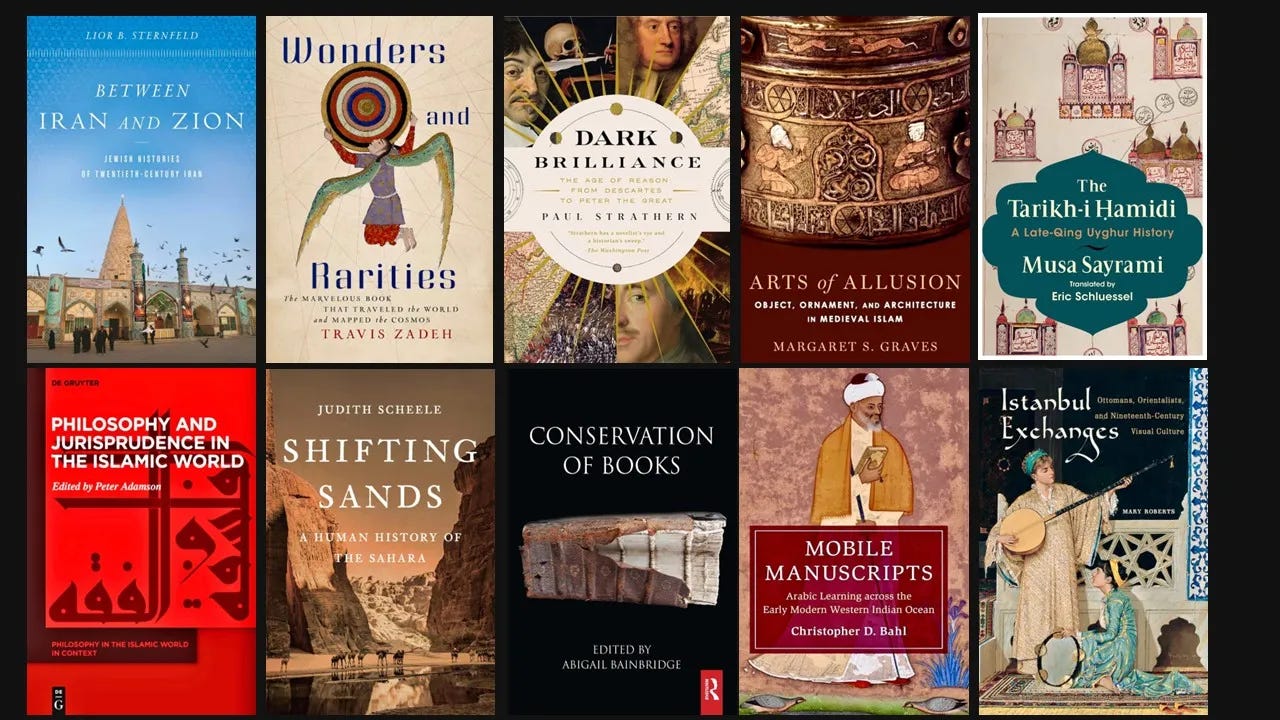

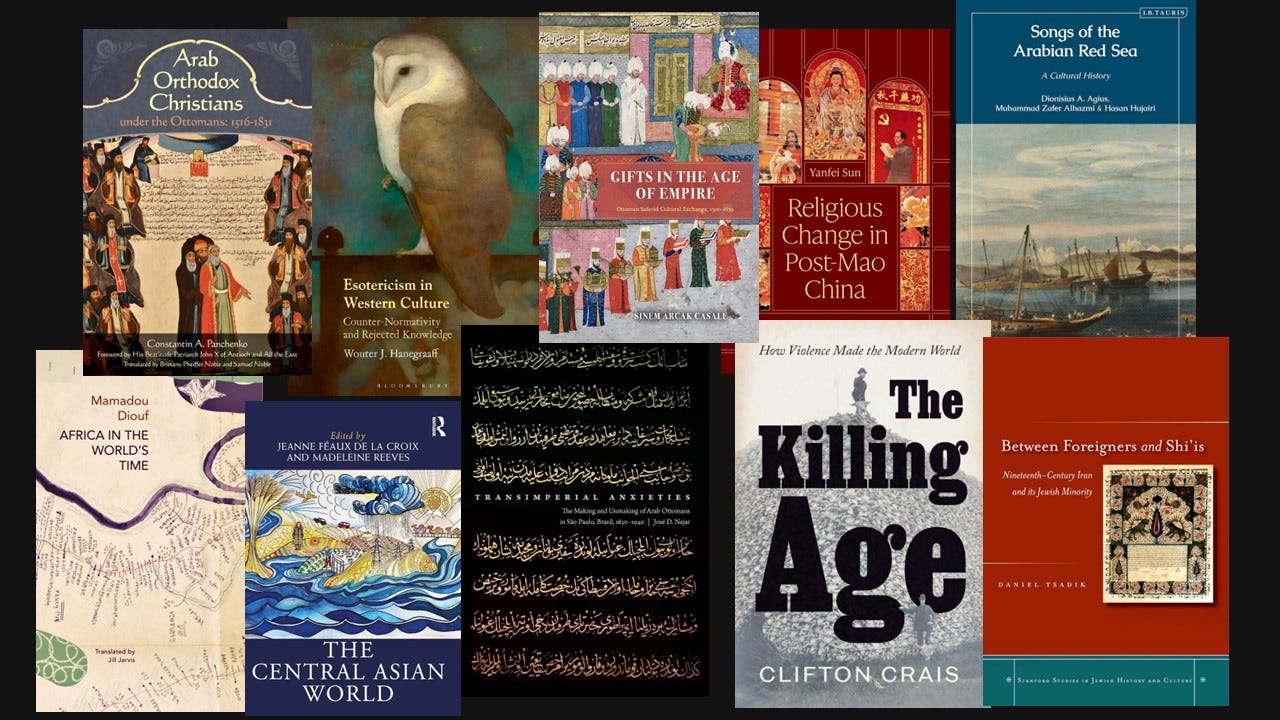
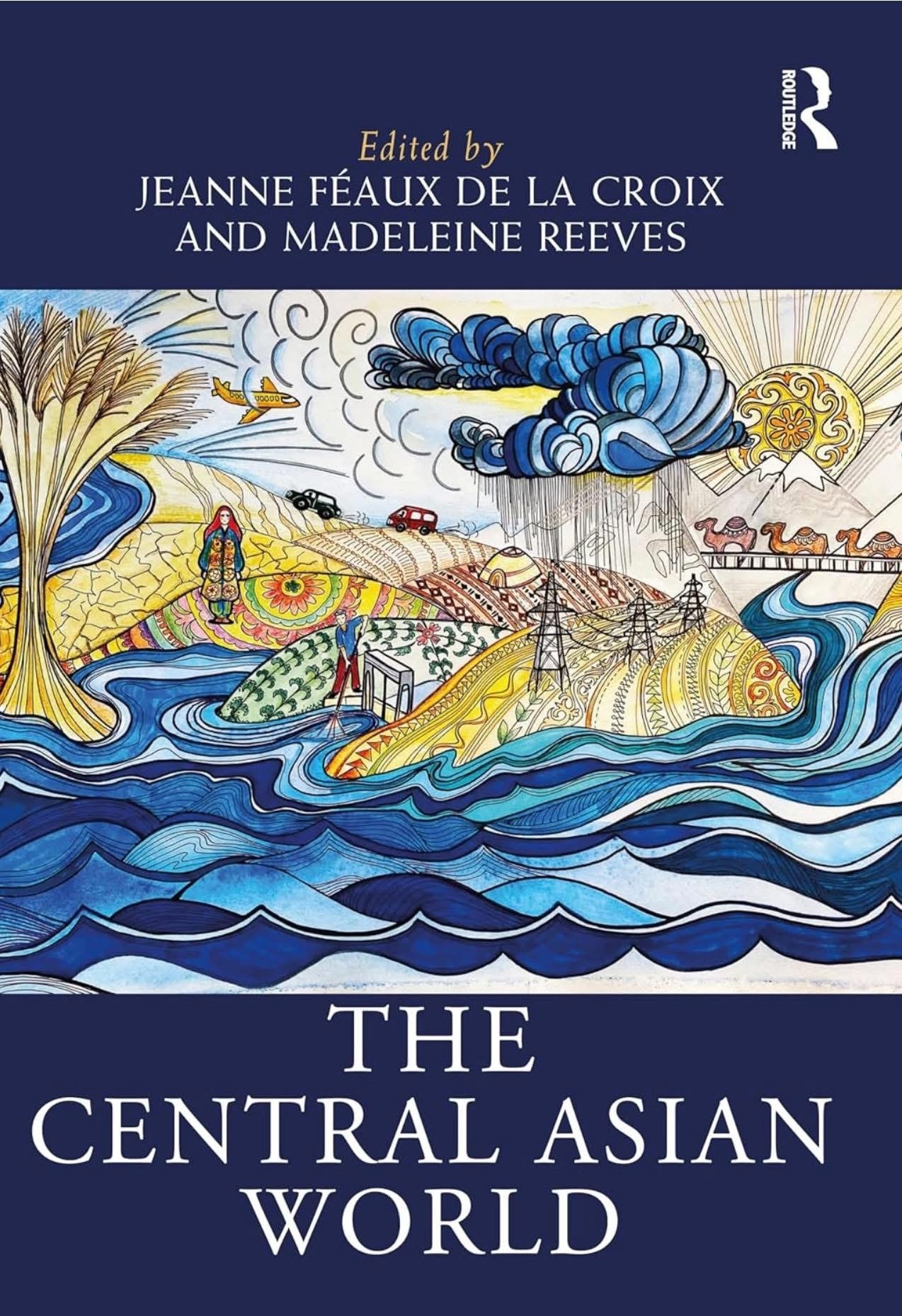
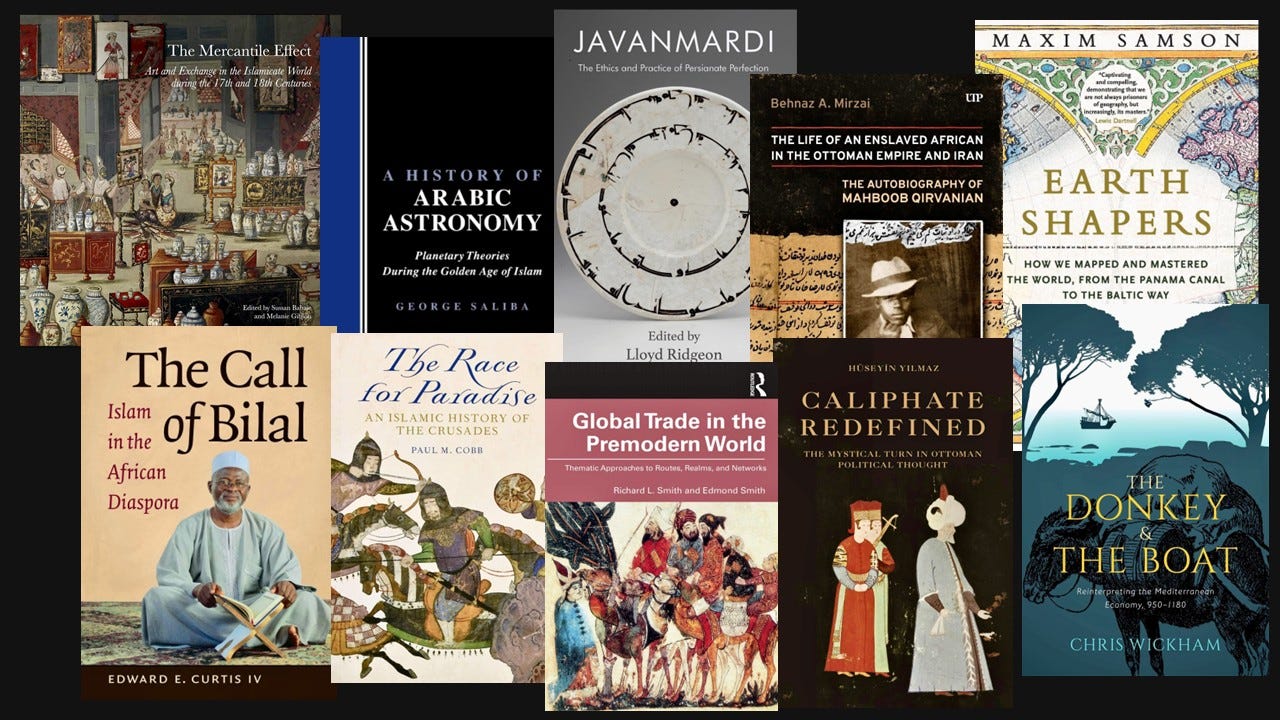


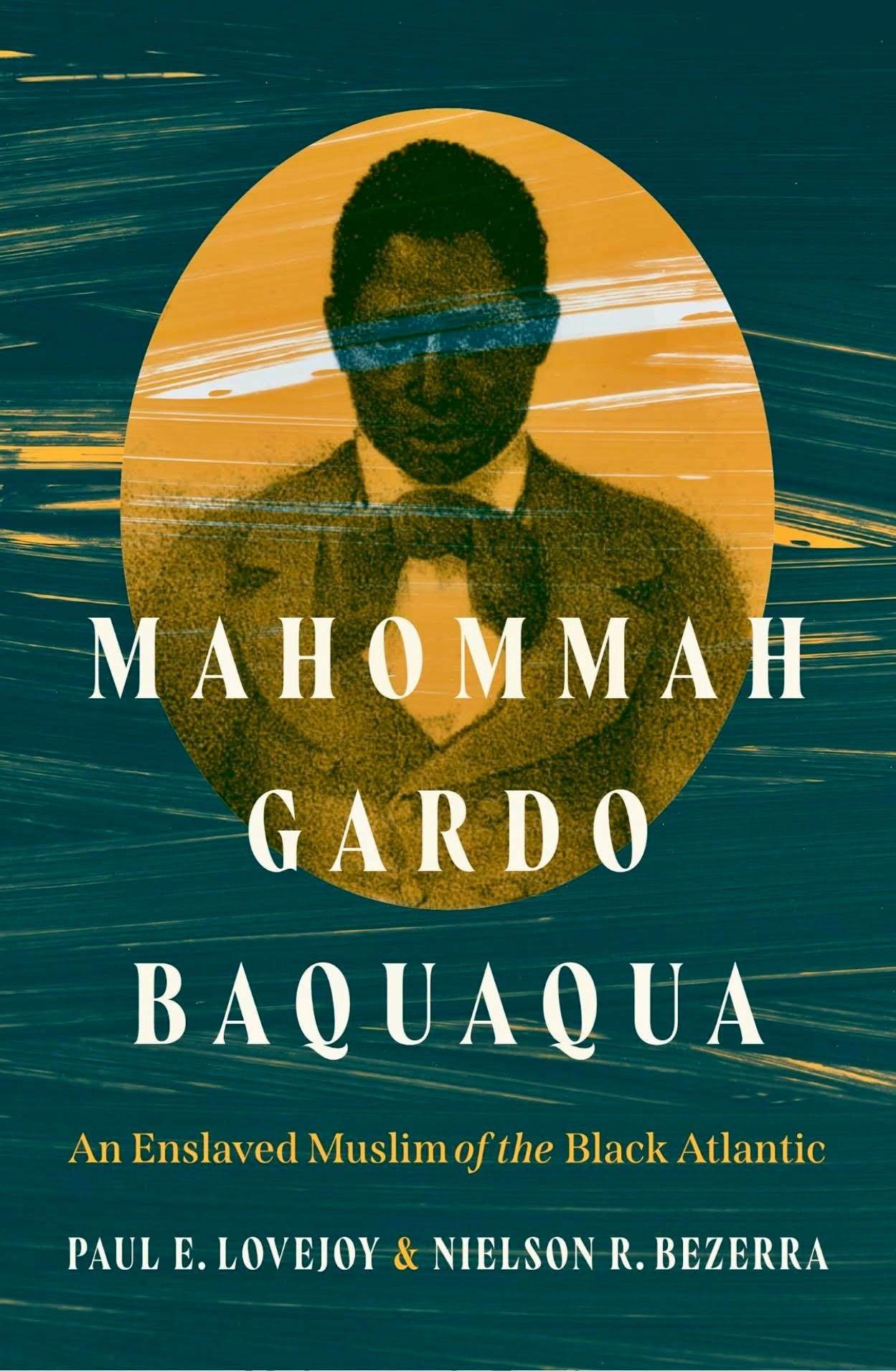
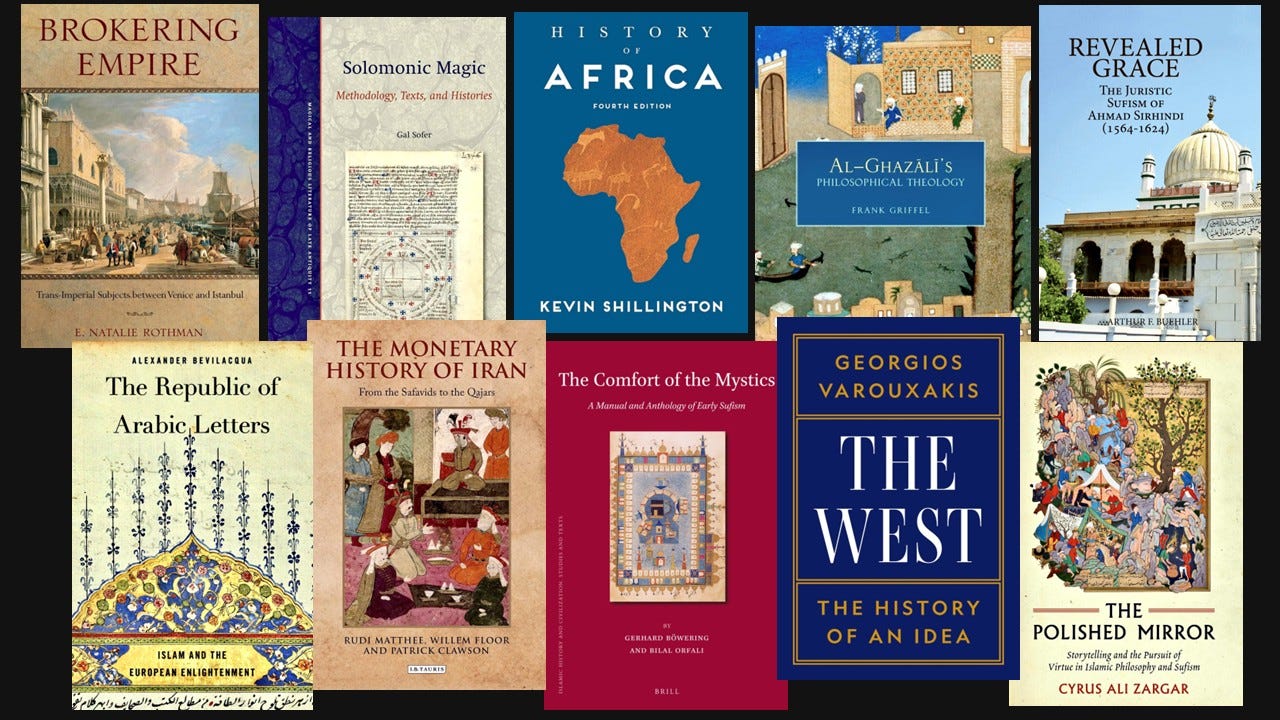


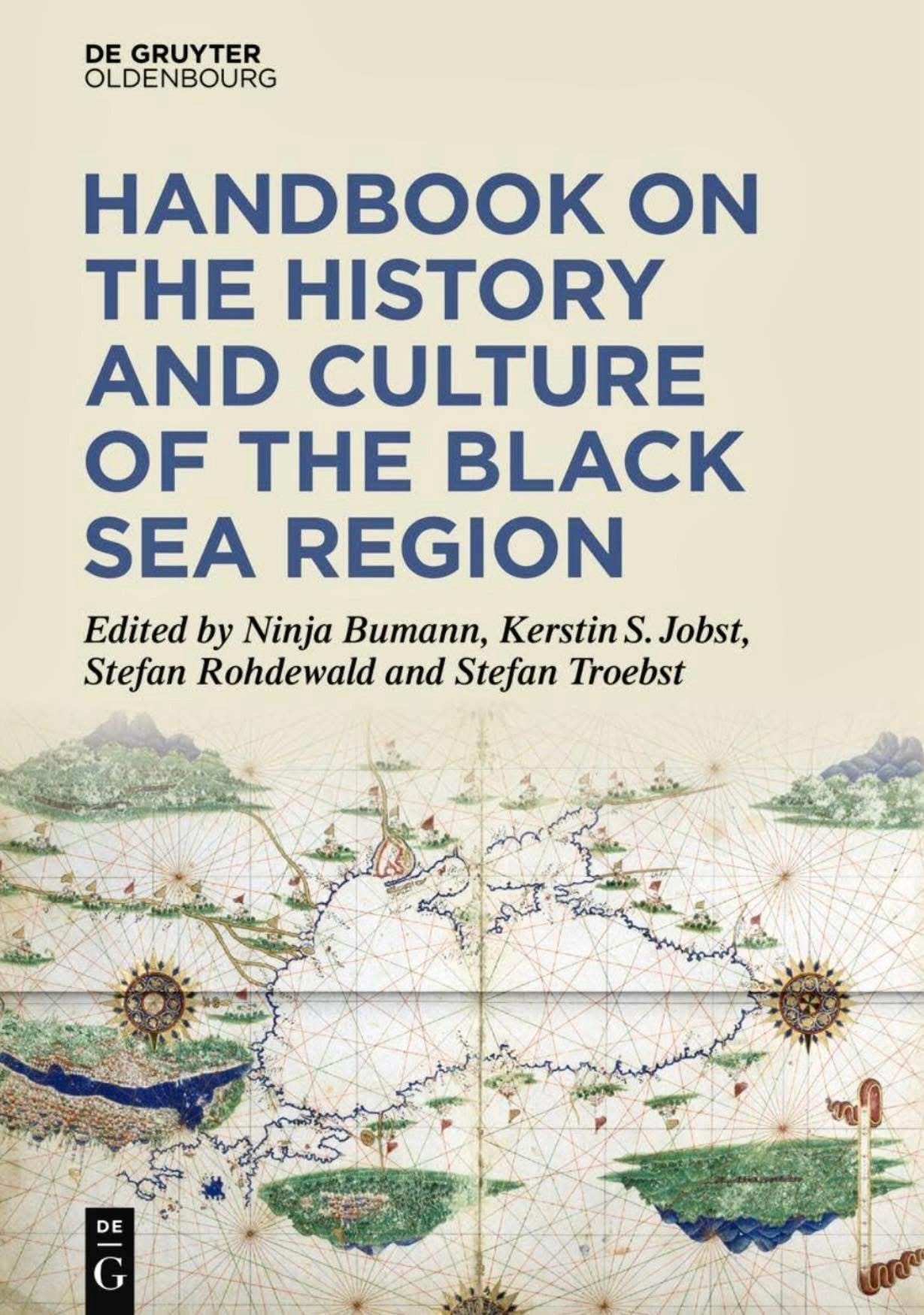

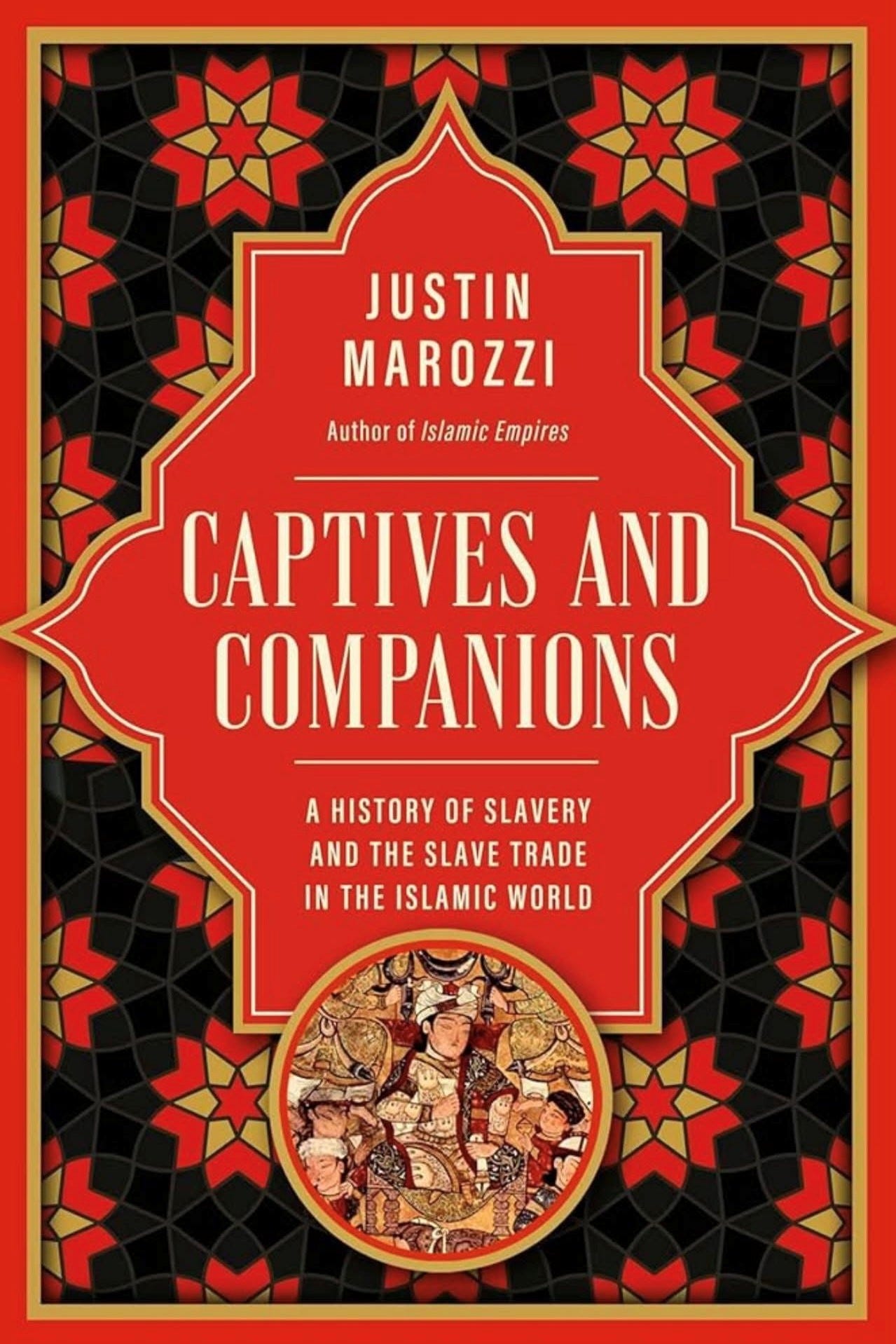



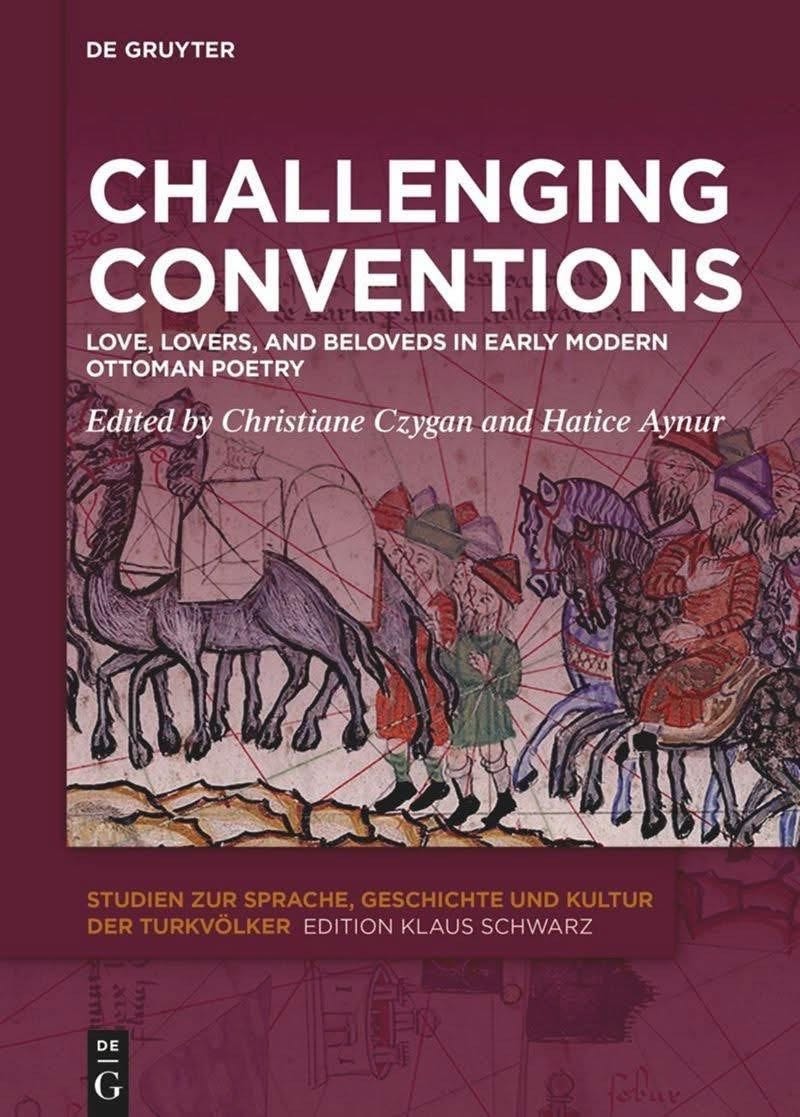

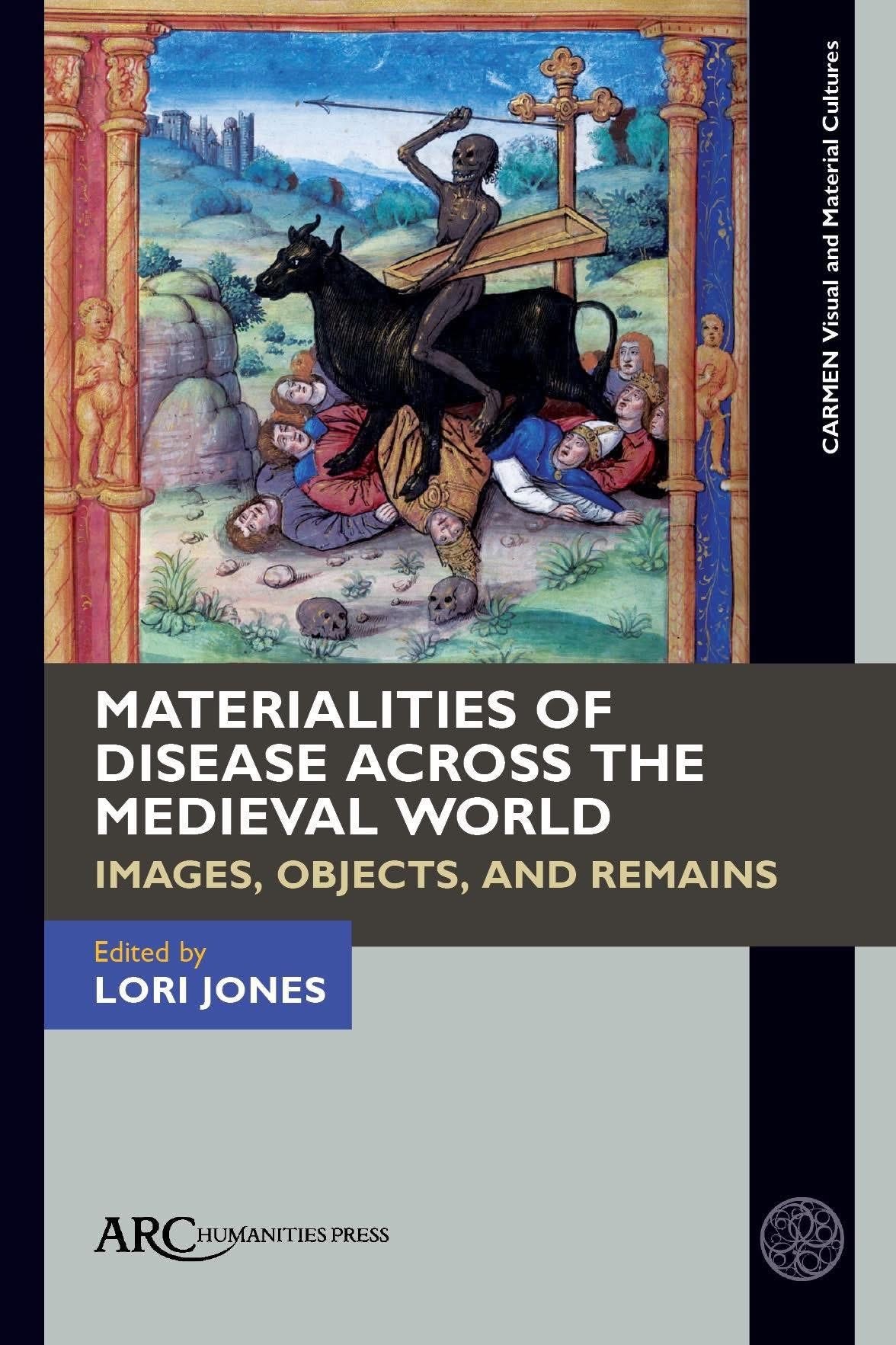
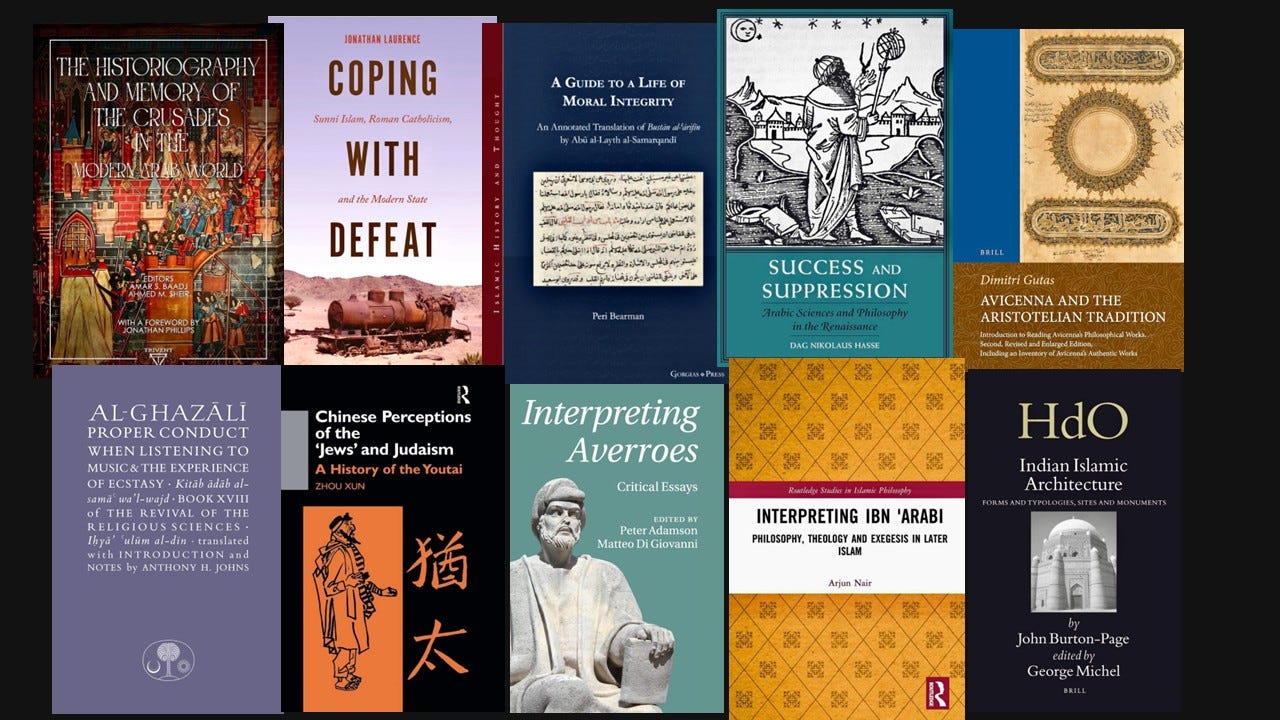

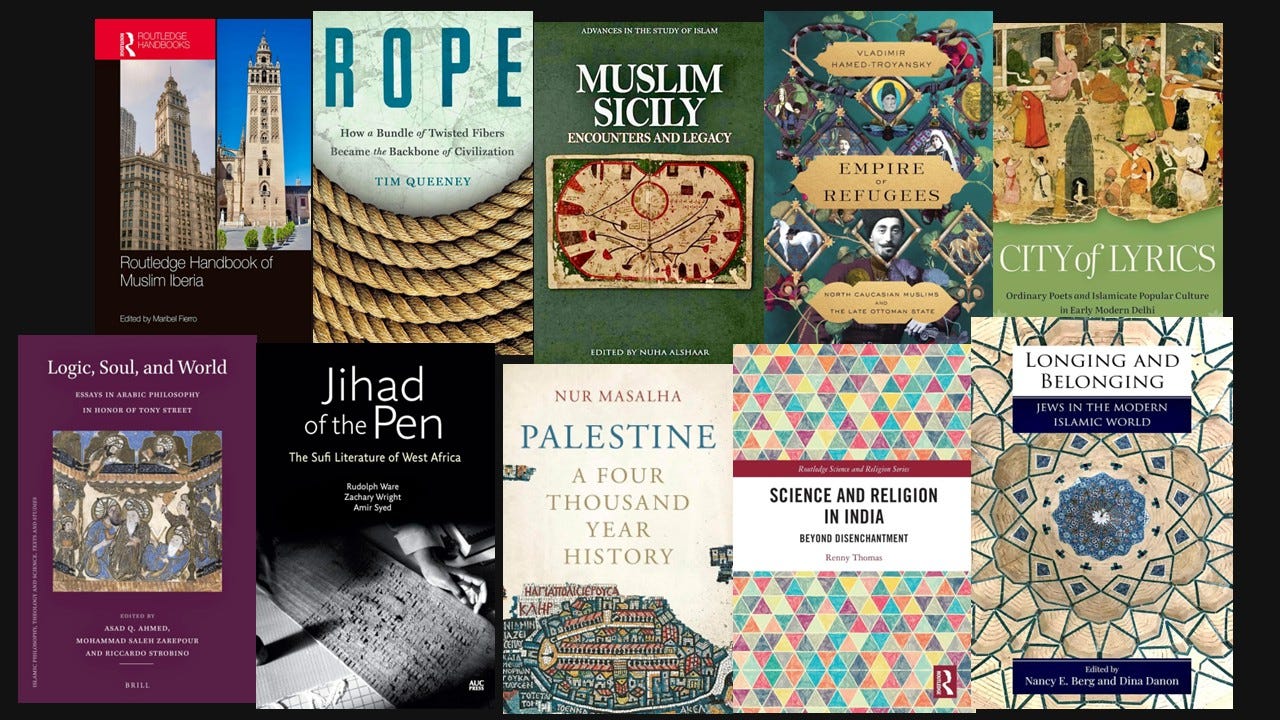

You may be interested in how GetRecall.ai summarizes this post, for a "concise" overview:
Introduction to The Seeker's Library
- The Seeker's Library is a curated list of 120 books from 1994 to 2026, with a focus on global history, culture, and intellectual inquiry.
The list is dominated by contemporary scholarship, with 45 titles from 2025, and highlights the work of authors such as Lior B. Sternfeld, Peter Adamson, and Travis Zadeh.
The books cover a wide range of topics, including Jewish histories, Islamic philosophy, African and Uyghur storytelling, and the history of science and faith, challenging Eurocentric timelines and offering fresh perspectives on global history.
The section from 'The Seeker's Library - Zubair's Bookshelf' features various book publications across different years, focusing on topics such as Ottoman-Safavid cultural exchange, Iranian Jewish history, and Islamicate world art and trade.
Exploring Islamic History, Philosophy, and Culture
- Books like 'Gifts in the Age of Empire' by Sinem Arcak Casale, 'The Mercantile Effect' edited by Sussan Babaie and Melanie Gibson, and 'Global Trade in the Premodern World' by Richard L. Smith and Edmond Smith explore the intersection of culture, politics, and trade in the Islamic world and beyond.
Other notable publications include 'Life of an Enslaved African in the Ottoman Empire and Iran' by Behnaz A. Mirzai, 'America, América: A New History of the New World' by Greg Grandin, and 'Persianate Historical Sociology: Collected Essays' by Saïd Amir Arjomand, which offer unique perspectives on history, culture, and identity.
The section from 'The Seeker's Library - Zubair's Bookshelf' discusses various books on Islamic history, philosophy, and culture, including "Al-Ghazali’s Philosophical Theology" by Frank Griffel and "The West: The History of an Idea" by Georgios Varouxakis.
Other notable books mentioned include "Revealed Grace: The Juristic Sufism of Ahmad Sirhindi" by Arthur F. Buehler, "The Polished Mirror: Storytelling and the Pursuit of Virtue in Islamic Philosophy and Sufism" by Cyrus Ali Zargar, and "The Republic of Arabic Letters: Islam and the European Enlightenment" by Alexander Bevilacqua.
The books cover a range of topics, from the history of Islamic thought and Sufism to the cultural and intellectual exchanges between Islamic and European civilizations, highlighting the complexity and diversity of Islamic history and culture.
The section from 'The Seeker's Library - Zubair's Bookshelf' discusses various books on history, philosophy, and culture, including works by authors such as Nathan Hofer, Fadlou Shehadi, and Said Amir Arjomand.
- These books cover topics like the transformation of Sufism, the philosophy of music in medieval Islam, and the history of empires, including the Mongols and the Ottoman Empire.
Other books mentioned explore the history of the Persian Gulf, the concept of homosexuality in the Arab-Islamic world, and the global history of the mango fruit, among other subjects.
Diverse Topics in History, Culture, and Science
The Seeker's Library features a collection of books on various topics, including secularism, religion, science, and history, with publications ranging from 2000 to 2025.
Books like "Rethinking Secularism" and "Before Religion: A History of a Modern Concept" challenge traditional notions of secularism and religion, while "Inside the Stargazer’s Palace" explores the intersection of science and mysticism.
- Other notable books include "The Invention of Religion in Japan", "The History of Alchemy", and "Mantle of the Sufi Kings", which offer insights into the history of religion, science, and culture in different parts of the world, including Japan, Europe, and the Middle East.
The section discusses various books that explore the history and culture of Muslim societies, including "The Routledge Handbook of Muslim Iberia" edited by Maribel Fierro and "Muslim Sicily: Encounters and Legacy" edited by Nuha Alshaar.
Other books mentioned include "Rope: How a Bundle of Twisted Fibers Became the Backbone of Civilization" by Tim Queeney, "City of Lyrics: Ordinary Poets and Islamicate Popular Culture in Early Modern Delhi" by Nathan L. M. Tabor, and "Empire of Refugees: North Caucasian Muslims and the Late Ottoman State" by Vladimir Hamed-Troyansky.
The books cover a range of topics, such as the history of Muslim rule in Iberia, the cultural exchange between Muslims, Jews, and Christians, and the experiences of refugees and Jewish communities in the Islamic world, with authors including Asad Q. Ahmed, Rudolph Ware, and Nur Masalha.
Great visuals!